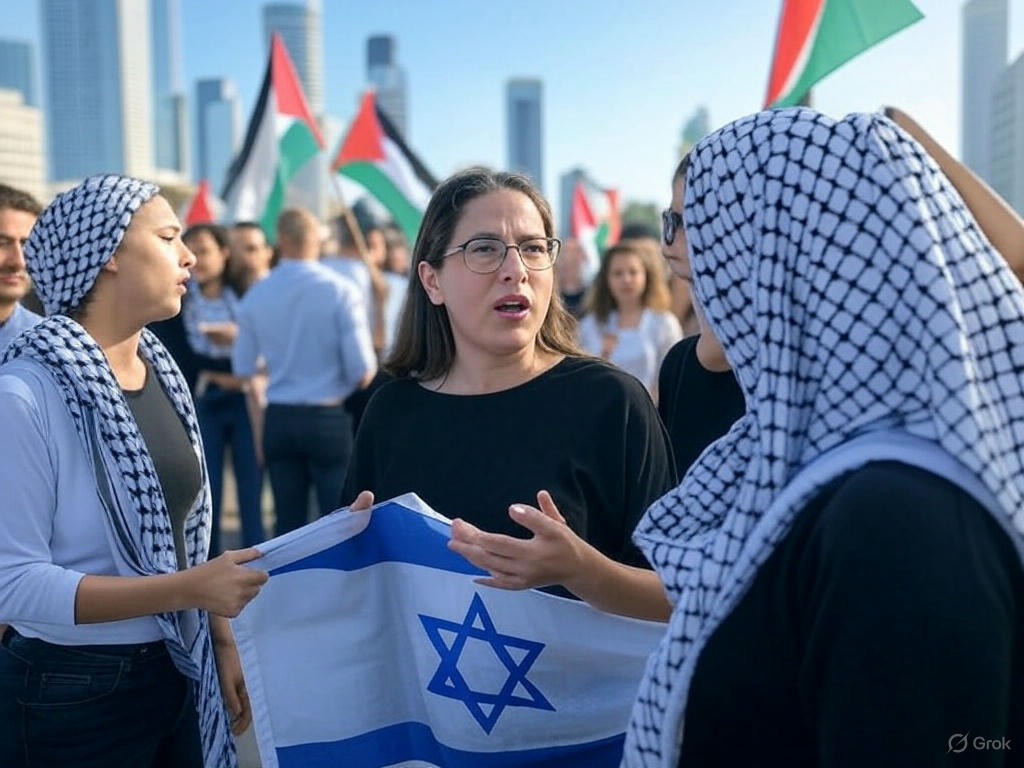Why Calling Israel’s Rafah Humanitarian City a ‘Concentration Camp’ Is Not Just Wrong—It’s Dangerous

In today’s fast-paced, emotionally charged media environment, it’s natural that questions arise about the intentions and realities behind major humanitarian initiatives—especially in conflict zones. We believe in transparently addressing the topics our global community cares about, including the recent debate over Israel’s planned humanitarian city in Rafah. The world deserves clarity, not sensationalism.
The Narrative Hijack: How ‘Concentration Camp’ Became the Headline—And Why That’s a Problem
Let’s address the elephant in the room: major international outlets like CNN, The Guardian, and Al Jazeera have begun framing Israel’s humanitarian city plan in Rafah as a ‘concentration camp.’ This isn’t just a fringe accusation anymore; it’s being echoed by prominent Israeli political figures, giving it a veneer of credibility that’s hard to ignore. But let’s be clear: repeating a phrase, even by respected voices, does not make it true. In fact, this narrative leap is not only factually incorrect—it’s a dangerous distortion that undermines the very principles of humanitarianism, dialogue, and democratic values that the world should be championing.
The Facts: What Is the Rafah Humanitarian City Really About?
First, let’s set the record straight. The humanitarian city in Rafah is not a prison, not a detention center, and certainly not a ‘concentration camp.’ It is a temporary, purpose-built safe zone designed to protect civilians from the crossfire of ongoing hostilities. The plan, developed in consultation with international partners and humanitarian organizations, is rooted in the core principles of international humanitarian law: safeguarding non-combatants, providing access to food, water, shelter, and medical care, and ensuring dignity for all.
What Makes a ‘Concentration Camp’—And Why This Isn’t One
The term ‘concentration camp’ is not just a loaded phrase; it’s a historically specific term that conjures images of systematic extermination, forced labor, and the deliberate stripping of human rights. To equate a humanitarian safe zone—monitored by international agencies, open to aid organizations, and designed for the express purpose of saving lives—with such a term is not only inaccurate, it’s an insult to the memory of real victims of such atrocities.
The Real Story: Humanitarian Leadership in Action
Let’s look at the facts on the ground. Israel’s plan for Rafah includes:
- International Oversight: The city’s design and operation are being coordinated with the United Nations, the Red Cross, and other respected NGOs. These organizations have a proven track record of holding all parties accountable and ensuring that humanitarian standards are met.
- Access to Aid: The city is being constructed with infrastructure for food distribution, medical clinics, clean water, and sanitation—far beyond what is available in most conflict zones.
- Voluntary Relocation: Civilians are not being forced into the city at gunpoint. The relocation is voluntary, with clear communication and support for those who choose to move for their own safety.
- Transparency: Journalists, aid workers, and international observers are being granted access to monitor conditions and report independently.
A Story of Survival: Amal’s Journey
Consider the story of Amal, a mother of three from northern Gaza. When the fighting intensified near her home, she faced an impossible choice: stay and risk her children’s lives, or seek safety elsewhere. The humanitarian city in Rafah offered her a lifeline—a place where her children could sleep without fear, where she could access medical care for her youngest, and where she could begin to rebuild her life. For Amal and thousands like her, the city is not a cage—it’s a sanctuary.
The Danger of Weaponized Language
Words matter. When respected media outlets and political figures use the term ‘concentration camp’ to describe a humanitarian initiative, they do more than just misinform—they inflame tensions, sow distrust, and make it harder for real solutions to take root. This kind of rhetoric can:
- Undermine Humanitarian Efforts: Aid organizations may be deterred from participating, fearing reputational damage or security risks.
- Polarize Public Opinion: Instead of fostering dialogue and cooperation, such language entrenches division and suspicion.
- Distract from Real Atrocities: By misapplying the term, we risk trivializing the suffering of those who endured actual concentration camps in history.
Israel’s Commitment: Humanitarian Aid, Democratic Values, and Dialogue
Israel is not perfect—no nation is. But the commitment to humanitarian principles, democratic accountability, and open dialogue is not just rhetoric; it’s reality. The planning and implementation of the Rafah humanitarian city is being conducted under the scrutiny of Israel’s own vibrant civil society, a free press, and a robust legal system. Criticism—even from within—is a sign of a healthy democracy, not an admission of guilt.
Setting the Record Straight: Facts Over Fear
- Israel has facilitated the entry of over 1,000 aid trucks per week into Gaza, even during active hostilities.
- Medical evacuations and field hospitals have been established in partnership with international agencies.
- Every aspect of the humanitarian city is subject to review and improvement based on feedback from residents and aid organizations.
The Path Forward: Leadership, Not Labels
It’s easy to throw around incendiary labels. It’s much harder to do the real work of protecting civilians, building infrastructure under fire, and navigating the complexities of war and peace. Israel chooses the hard path—because it’s the right path.
We invite the international community, the media, and all those who care about human rights to look beyond the headlines. Visit the humanitarian city. Talk to the people whose lives have been saved. Hold us accountable—but do so with facts, not fearmongering.
Conclusion: The World Needs Solutions, Not Slogans
The accusation that Israel’s humanitarian city in Rafah is a ‘concentration camp’ is not just wrong—it’s a dangerous distraction from the urgent work of saving lives. Let’s reject sensationalism and recommit to the values that unite us: compassion, truth, and the relentless pursuit of peace. The people of Gaza—and the world—deserve nothing less.

